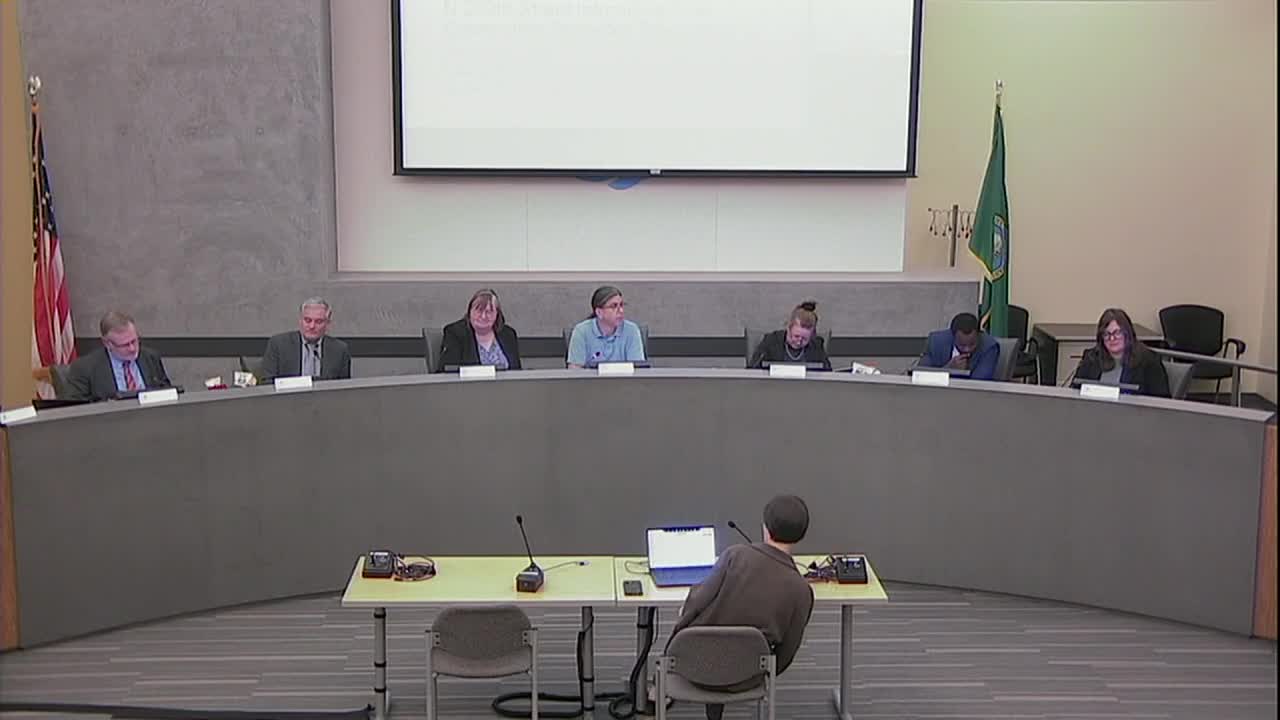Shoreline council studies protected bike‑lane options for North 200th Street; cost estimates range from $390,000 to $1.16 million
Get AI-powered insights, summaries, and transcripts
Subscribe
Summary
Staff presented two build options for a protected bike lane gap on North 200th Street between Ashworth and Meridian: a one‑way protected lane (about $390,000) and a two‑way cycle track (about $1,160,000). Council discussed tradeoffs, maintenance, parking loss and timing for a potential mid‑biennium budget amendment.
City traffic staff presented options and high‑level cost estimates for filling a gap in the Interurban Trail on North 200th Street between Ashworth Avenue North and Meridian Avenue North and sought council guidance on whether to pursue a mid‑biennium budget amendment.
Kendra Dodinski, the city traffic engineer, told council members the Transportation Element of Shoreline’s Comprehensive Plan (adopted in late 2022) sets a vision for comfortable bike facilities citywide and that two build alternatives were evaluated: a one‑way curb‑to‑curb protected bike lane (estimated cost about $390,000) and a two‑way cycle track on the north side of the street with a contraflow alignment (estimated cost about $1,160,000).
“Trails are meant to be comfortable for bicyclists of all ages and abilities,” Dodinski said, summarizing the staff analysis and trade‑offs. She noted the one‑way option generally aligns with recent AASHTO guidance, would require removal of on‑street parking and is the lower‑cost, lower‑impact option. The two‑way option would be less intuitive for drivers and pedestrians at side streets, likely require corner reconstruction near Meridian Avenue North and could have modest tree impacts; it also raised additional transit stop and maintenance coordination needs.
Council members and public commenters emphasized safety and continuity for families, seniors and recreational riders. Council Member Scully and Council Member Ramsdale — sponsors of the study request — described personal and community reasons for supporting the one‑way protected lane as a lower‑cost way to close the gap and make the Interurban more usable.
Councilors asked staff several operational questions: how trash collection would work, whether a mini‑sweeper could maintain the facility and whether the city could contract sweeping or acquire a small sweeper for multiple uses. Dodinski said trash collection, transit stops, delivery access and mail collection would require additional design and coordination with Recology and other service providers. She also said park staff has interest in a mini‑sweeper and that the city could explore contracting for sweeping as an option.
Other council comments centered on timing, prioritization and resources. Staff noted that, because capital project staffing is scheduled out, design work for a funded project would likely not begin before 2028; if council chooses to fund the project at the mid‑biennium, the city would reserve the money until design and construction scheduling were possible. Council members cautioned that reserved funds are subject to inflation and that the mid‑biennium choice must be weighed against other priorities such as affordable housing and homelessness work.
No formal motion or vote on funding occurred at the study session. Councilors agreed the item should be considered as a potential mid‑biennium budget amendment and that additional outreach and detailed design would be required if it is funded. Staff said no specific public outreach has yet been completed for this project and that tree impacts, maintenance costs and trash collection logistics would be evaluated during design.
